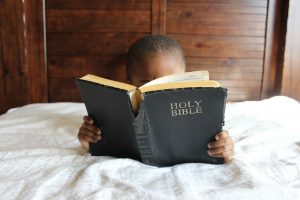What I think
Censorship is a slippery slope. I understand where parents would like to protect their children from how ugly the world can be, but in the specific case of Song of Solomon by Toni Morrison, the ugliness of the world is not being promoted. Nothing in the book encourages readers to take part in similar actions. It conjures empathy for the main character and wells pain from a deep place in readers. The novel is graphic in ways that match how graphic real life can be.
Advanced placement students are required to analyze material at a collegiate level. David Flood, the teacher who assigned the book, said something that stuck with me. It had something to do with parents not going up to colleges and demanding that something graphic not be taught to their students. There is a certain level of trust in both the student and the institution to construct curriculum that it appropriate for the development of its students. I disagree with parents being able to circumnavigate a board that was constructed of faculty, staff, and parents to decide the books appropriateness prior to the start of the school year.
It is my opinion that the school caved to the pressures of parental concern without defending the author or the novels literary merits. I do not believe that every superintendent or county commissioner should read every novel that is being taught in their schools, but they should trust the teachers and boards they have put in place to do just that.
People are introduced to the bible at young ages. The book contains themes of rape, sodomy, murder, incest, and much more. We do not ban the bible in communities, instead it is interpreted, and we learn from it. We do not expect people to commit incest because they read it in the bible, nor do we expect them to murder their brothers.
It is difficult to agree with the reasons parents who were supporting the removal of Song of Solomon because they offer no alternatives and went as far as calling the book “pure trash”. To take that stance proves a lack in literary interpretation and disrespects the academic institutions that have praised this novel time and time again.
This novel does not promote immorality. It promotes introspective growth from a voice that is heard far to little in academia. For the longest time I grappled with the real context for the banning, because removing it from curriculum is effectively the same thing, of this book. On a surface level it appears they were displeased with the graphic content, but their battle to remove this type of content starts and stops with a black female author. Had there been more consistency in the message it would be more believable.
When speaking on censorship in general
I believe that censorship should be mandatory in some cases. Books that directly encourage hatred or violence, and I mean verbatim encourage this behavior, should not be promoted in anyway. While listening to the podcast criminal, a lawyer attempted to sue a publisher for its book on how to be a hit-man. They won the right to pursue legal action be settled out of court. The case supports that books designed to promote violence against others are not protected in the same way by the 1st amendment. Aside from that, I think all ideas, asinine or not, should have the same rights as others.
Here is a link to the criminal podcast mentioned.

No Comments Yet